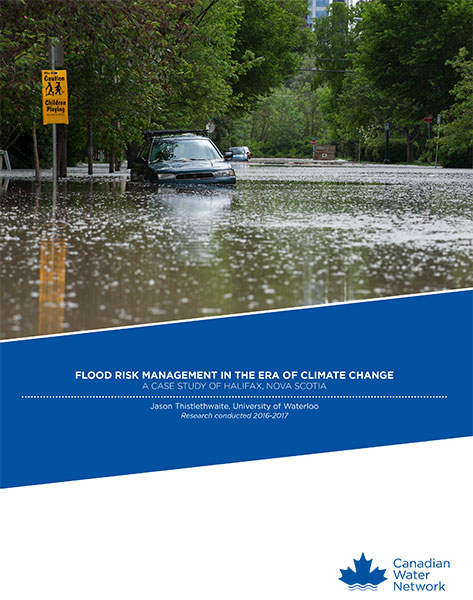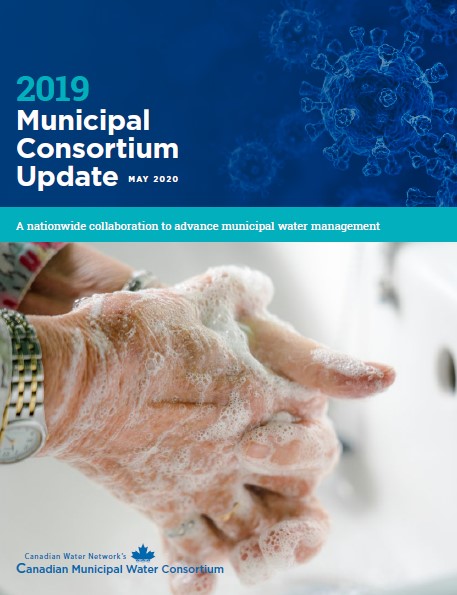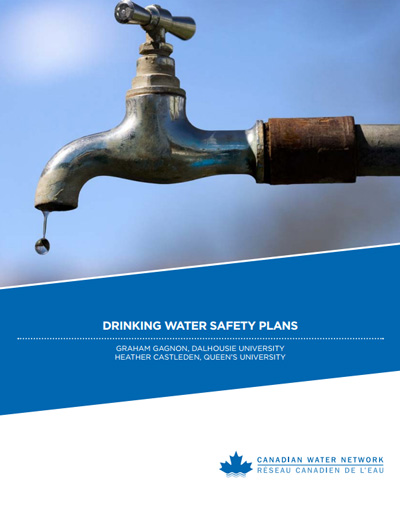Flood Risk Management in the Era of Climate Change: A Case Study of Halifax, Nova Scotia
Jason Thistlethwaite, Assistant Professor, University of Waterloo (2016-2017)

This report pertains to a study that was conducted in 2016 and 2017 and focused on riverine flooding, which can occur when extreme rainfall causes rivers to overflow onto surrounding land. Climate change flood risk was assessed in four neighbourhoods in Halifax, Nova Scotia. A two-part flood risk model was used to identify flood-prone areas and where damages are likely to occur. Location-based hazard and damage information generated by the model were then combined with vulnerable infrastructure like residential properties to map the spatial distribution of flood risk in Halifax. Next, climate change scenarios for changing precipitation patterns were integrated into the model to demonstrate how flood losses are expected to change relative to current flood losses. Finally, the implications of flood risk assessment for municipalities in the era of climate change were examined to inform Canada’s evolving flood management policy.




